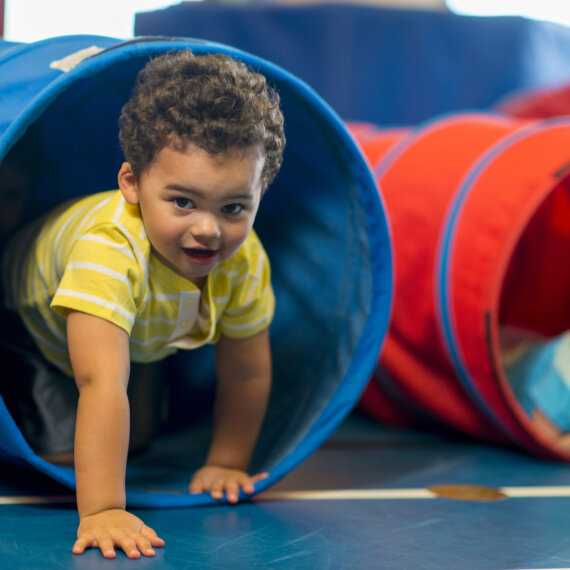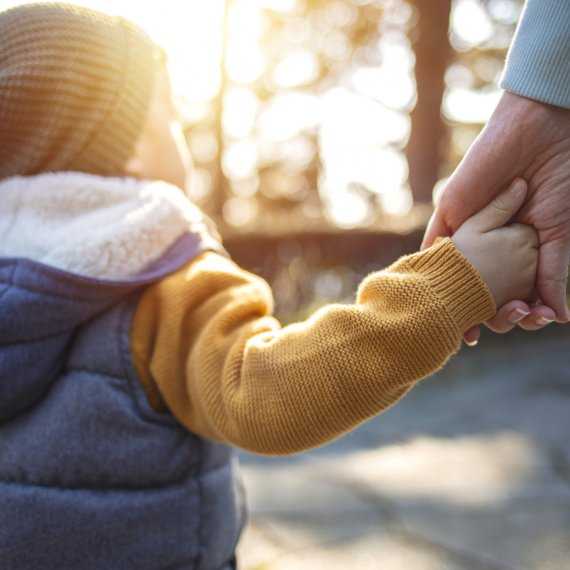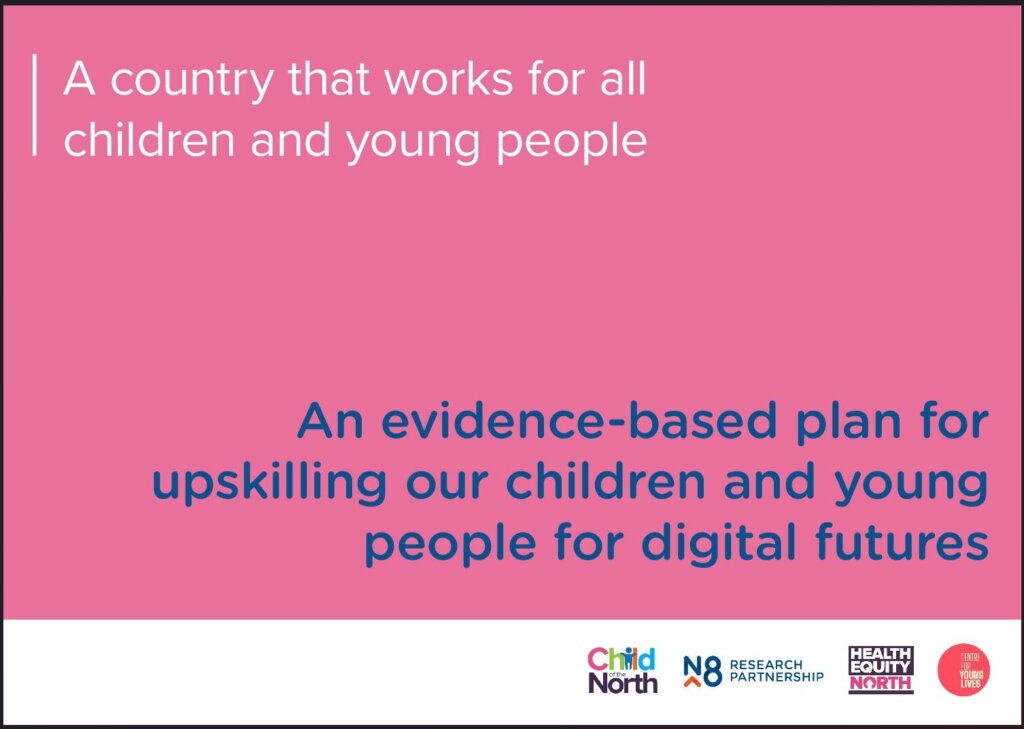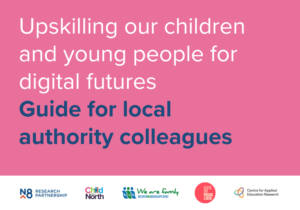Upskilling our children and young people for digital futures
For a country that works for all children and young people.
We are calling on the government to put children first. Our 2024 report series provides evidence-based plans and recommendations on how to improve outcomes for children and young people in the North of England and beyond. Published alongside 2025 report updates, new practitioner toolkits have been designed to support schools, child health services, and local authorities to implement the report recommendations and put children first. #ChildrenFirst
In 2024, Child of the North and Centre for Young Lives initiated a major campaign calling on the government to build a country that works for all children and young people. This campaign delivered a series of reports and webinars on twelve key topics identified by Northern child health leaders as major issues of concern, including poverty, special educational needs, school attendance and mental health. These reports provide rigorous research and pragmatic, evidence-based recommendations.
First published in August 2024, the seventh report, An evidence-based plan for upskilling our children and young people for digital futures, puts forward new proposals and highlights innovations to close a digital divide which is holding back the life chances of millions of children in the UK, and to enable them to navigate digital content critically and responsibly. The report warns that ‘digital exclusion’ is still leaving behind millions of children and calls for a ‘digital vaccination’ for children to tackle the tsunami of fake news and disinformation.
An update published October 2025, Digital upskilling update: Innovative approaches to close the digital divide, recognises that the Government has taken an important step in putting digital inclusion at the heart of national policy, and stresses the urgent need to now connect this strategy with the people and places where digital exclusion remains most acute – such as Northern England.
We need the government, policymakers, practitioners, academics, communities and young people to work together to build a country that works for all children and young people.
How To Guides
A series of toolkits have been developed to help practitioners and organisations take practical steps to improve the health and wellbeing of the children and young people with whom they work directly. Building on the findings of the Child of the North reports, these ‘How To’ guides provide evidence and suggestions about how all parties can work together.
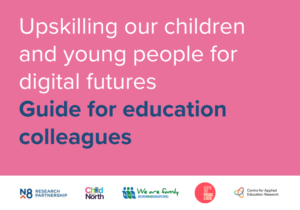 |
Download
Upskilling our children and young people for digital futures – Guide for education colleagues |
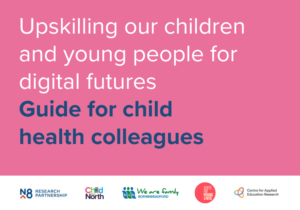 |
Download
Upskilling our children and young people for digital futures – Guide for child health colleagues |
Webinar
In September 2024 a number of the report’s authors came together to discuss the report’s findings and policy recommendations, including:
- Ryan Bramley (University of Sheffield)
- Jennifer Rowsell (University of Sheffield)
- Uta Papen (Lancaster University)
- Dylan Yamada-Rice (University of Plymouth)
- Adam Syrop (Impact Gamers)
Anne Longfield, Executive Chair of the Centre for Young Lives, said:
“Children are growing up digital but we are not giving them the technology and skills they need to make the most of the opportunities it brings or protection they need to navigate the online world safely. Technology and the internet provide access to a world of opportunity and are now a crucial part of childhood and our futures.
“The recent outbreaks of violence in England have shown the consequences of disinformation and its impact on the real world. It is crucial that we develop more effective ways of preventing children and young people from being exposed to fake news and vaccinate them against its dangers.
“That means providing children with the digital skills they need, providing teachers with the time and training to keep up to date with digital advancement, and ensuring children are learning about disinformation and other potential online harms from an early age..
“We also need to equip children for the digital world they live in. Four in ten children do not have either home broadband or a laptop or desktop computer. This is not just a problem that happened during Covid. This ongoing digital divide is still leaving behind millions of children, which can have profound implications for their educational outcomes and future employment prospects.
“We can’t hope to achieve the aim of becoming a world-beating economy with a well-trained and well-educated workforce for as long as a substantial number of young people are shut out of the digital world.”
Dr Camilla Kingdon, former President of the Royal College of Paediatrics and Child Health, said:
“The world around us is changing staggeringly fast. The Technology Revolution is likely to bring the greatest changes to how we live and work since the Industrial Revolution. “The opportunities are potentially incredible. However the truest and deepest impact will only be realised if our entire population is ready and skilled to embrace the changes and reap the rewards.
“This Report outlines the existing digital inequalities which are now deeply entrenched amongst children, especially those growing up in poverty, as well as stark geographical discrepancies. Crucially, the Report makes a series of recommendations and showcases work that is already successfully tackling this problem.
“Time is not on our side. I commend this report to our new government and hope that they will urgently work to help equip children with the skills to safely take advantage of the vital opportunities the digital world offers.”
Professor Mark Mon Williams, Child of the North report series editor, said:
“The UK’s future depends on our children and young people acquiring digital skills. The prosperity of countries will increasingly depend on their ability to harness the digital revolution and this needs a workforce with the necessary technological skills. Upskilling the next generation will also protect them against the countless nefarious actors in the online world and create a population who can distil useful facts and discard misinformation.
“This report lays out the evidence for the new government so that they can work with and through education settings to ‘digitally vaccinate’ the next generation and ensure all children and young people have the skills required for the jobs of the future.”
Professor Jennifer Rowsell and Dr Ryan Bramley, from the University of Sheffield’s School of Education, and Executive Report editors, said:
“The age of AI, data literacies, and the platformisation of education is upon us and children and young people must be able to navigate their digital lives critically and safely. The Child of the North and Centre for Young Lives report gives a detailed picture of digital inequalities in the UK with new proposals and strategies for changes to education and inspiring research spotlights.
“It has been an honour to work as academic experts with the Child of the North Team to push for the changes that can help the new government reimagine education.”
Sign up for updates on our 2024/25 Campaign
We will only use this data for the purposes of providing updates on the Child of the North 2024/25 campaign and report series. For more information see the Privacy Policy at https://www.sheffield.ac.uk/privacy
Previous Reports
Previous reports can be found archived on our Child of the North Reports page.
Contact Us
Stephen Parkinson, Research Partnership Manager
***
